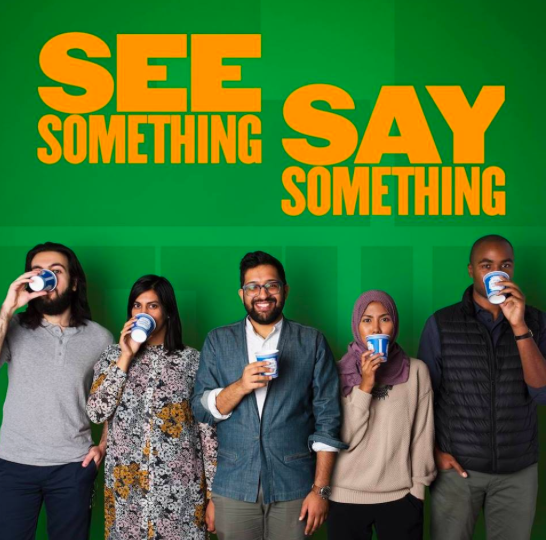Photo of Sam Valmassoi, president of Pack Recovery.
Graduate students are under pressure.
Many take on large amounts of student debt to pursue advanced degrees, yet aren’t paid what they deserve. They often spend long hours studying, grading assignments and completing research.
For graduate students in recovery, pressure to perform well can take a toll. It can be challenging for students to maintain sobriety, particularly in a college environment where substance use is a norm.
That’s why Pack Recovery exists.
The program, a part of NC State Prevention Services, is a student-run organization that supports those in recovery–whether they be students, faculty, staff or alumni.
“It provides a space for people to make friends and do activities without that pressure of drinking and drugs,” said Sam Valmassoi, president of Pack Recovery.
Valmassoi is a graduate student who just finished his first semester in the Civil engineering master’s program. He also says he is in recovery.
“When I came back to school, I was already in recovery. “I’ve always been a part of recovery communities throughout my recovery”, said Valmassoi. “I was looking for that and really just searched ‘recovery’ at NC State. I found out about Pack Recovery that way, and reached out and got involved.”
Sam’s Story
Valmassoi started drinking alcohol in high school, partying and drinking throughout his senior year. However, this did not affect his high school experience. After graduation, Valmassoi moved to Florida to study at the University of Miami. He continued drinking and started using drugs. As Valmassoi’s substance use increased, school became less of a priority.
“I went to class occasionally, but yes, school was not my priority. And it kind of snowballed. My grades, every semester, would kind of start off very strong, and they’d get progressively worse and worse. Every semester I’d say, ‘okay, I’m gonna get it together this time’ and you know, I just wouldn’t be able to do it,” said Valmassoi.
After dropping out of college, Valmassoi began working odd jobs to take care of himself. He continued using substances to cope with the shame of not finishing his degree.
“I think the biggest thing for me was feeling like a failure. I had set out to do this thing, and I couldn’t do it. And, that was hard,” said the Pack Recovery president.
Substance Use Disorder
Dr. Jennifer Carroll, an Associate Professor of Anthropology at NC State said, “anyone who has struggled to start new habits, diet or quit smoking, probably has some personal experience that aligns with, ‘oh, yes, I’m still doing it even though I know it’s bad for me’.”
As a cultural anthropologist, Dr. Carroll studies drug policy. “I’m interested in how the lived experiences of people who use drugs are shaped by policy and culture,” she told Nubian Message.
She’s written about the stigma and criminalization of substance use. Her research also explores how mental images of addiction reinforce stereotypes about drug users. The CDC consultant recalls spending an entire day in her medical anthropology course on the question, ‘what is addiction?’
A 2022 National Survey on Drug Use and Health revealed that one in six Americans aged twelve and older reported experiencing a substance use disorder (SUD). The disorder is characterized by mental and behavioral symptoms from continual substance use. According to the American Psychological Association, substance use disorder is a treatable chronic disease.
SUDs vary in severity and affect people of all backgrounds, especially college students. Alcohol use disorder (AUD) and drug use disorder was the highest among U.S. adults aged 18 to 25 in 2022. The Department of Health & Human Services shared that 29.5 million people over the age of 12 had an AUD while 61.2 million used illicit drugs. Although 9.2 million people had opioid use disorder, marijuana was the most commonly used illicit drug during this time with 52.5 million users.
The Substance Abuse and Mental Health Services Administration (SAMHSA) reported 59.3 million adults had some form of mental illness in 2021. While 1 in 12 adults aged 18 and older, had both a substance use disorder and a mental illness.
“People use drugs because drugs benefit them. I think that’s a very non-controversial statement to make. Now as your relationship or use patterns with drugs continue over time, the cost-benefit can change, the relationship can change,” said Dr. Carroll.
Pack Recovery is Twofold
Pack Recovery includes the student-led organization and staff within Prevention Services. Both offer support to NC State students in recovery. The student group provides a safe space to build community. They host weekly support meetings and Fun Friday events. The organization also offers volunteer opportunities and overnight retreats to students during the fall and spring semesters.
“Pack Recovery is kind of twofold, there’s the student group that’s a registered student organization, and then there’s Pack Recovery through Prevention Services,” Valmassoi tells Nubian Message. “The Prevention Services side of it is always available. So if anyone has some crisis, an issue, they want to talk about, people like Jeff and other people in Prevention Services are there throughout the year.”
In addition to crisis response, Prevention Services provides support for students experiencing substance use. Jeffrey Fay, Alcohol and Other Drug Prevention Coordinator, is a helpful resource in the department. He offers Opioid Overdose Prevention and Education Training and recovery awareness presentations across campus.
The Meaning Behind Recovery
Pack Recovery brings together NC State students who identify as being in recovery. Recognizing there are different paths to recovery, the organization does not adhere to a strict definition of the term. Recovery can include people who used substances in the past and those who presently use them.
“Recovery is always such a flexible word,” said Dr. Carroll. “It can mean everything from genuine evidence-based, flexible, person-centered support to punitive abstinence only structures – all of those fit under recovery.” Although punitive abstinence-only approaches are prevalent, Dr. Carroll does not endorse these programs because they are not evidence-based.
Valmassoi reached out for help and began his recovery journey at 30. With the support of family and friends, he returned to school to finish his degree. After graduating from Wake Technical Community College, Valmassoi transferred to NC State. There he joined Pack Recovery where he found a community.
Pack Recovery isn’t just a space for students. In fact, Valmassoi says, “we’re here for the whole campus community”. He shares that some NC State staff and alumni attend weekly meetings and events put on by the organization.
Two years after joining Pack Recovery, Valmassoi earned his bachelor’s degree. Now, he has his eyes set on earning a master’s. “Yes, I’m bettering myself, but it was a big healing thing for me. I was going back to school because I was in recovery,” said Valmassoi.
“And I really think my theory of recovery is like, that’s what’s really important is finding people that have a similar goal or been through similar experiences that come together and help each other. I think that is a big part of recovery and how recovery works. At least it has been for me.” – Valmassoi
_______________
Recovery from addiction is possible. For help, please call the free and confidential treatment referral hotline (1-800-662-HELP), or visit findtreatment.gov. This story was funded in part by a microgrant from Reporting on Addiction, with support from the Solutions Journalism Network.
Editor‘s note: This story was updated to provide more context from Dr. Jennifer Carroll about recovery efforts. The update was made on June 8, 2024.





